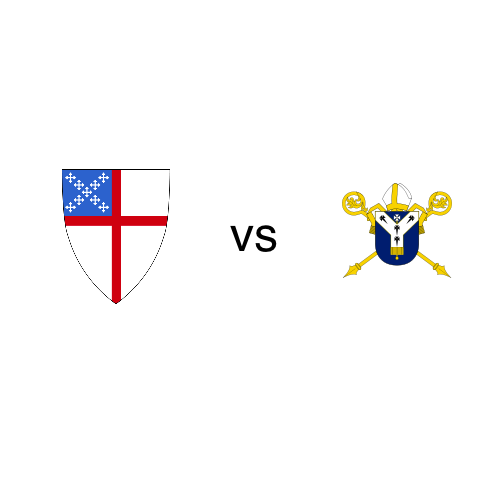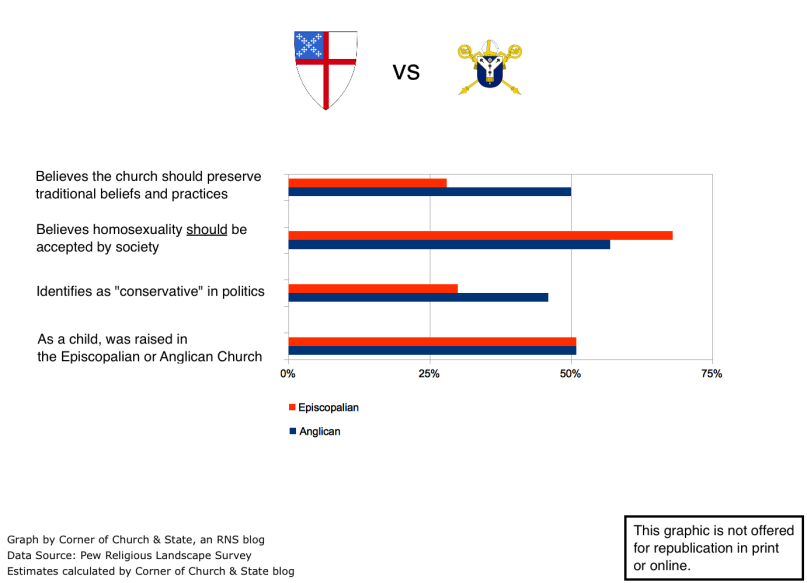One question that pops up repeatedly about our graph of religion and politics is, “Where are the Episcopalians? Did you lump them in with Anglicans?”
The simple answer is that all Episcopalians are Anglicans. So, putting them in the same group is completely accurate. There are some break-away or new Anglican congregations that are not part of the Episcopal Church, but they represent less than ten percent of Anglicans in the United States.
But I get the point of the question. There are some people who identify as “Anglican” and others who are proudly “Episcopalian.”
Jordan Hylden writes that while it is both innacurate and simplistic, there is the perception among church-going Americans that an “Episcopalian” is
a member of an pro-gay, autonomous American denomination, more liturgical than most churches but firmly within the theological orbit of liberal Protestantism.
While an “Anglican” is someone
part of a conservative evangelical church with bishops, connected somehow with Africa and opposed to homosexuality.
Fortunately, we have data to sort this out. Pew’s 2007 Religious Landscape Survey included 706 Anglicans/Episcopalians. When asked if they identified with the Episcopal Church or the Anglican church, 73 percent said they identified as Episcopalian; 21 percent said they were Anglican.
The key difference between these identities is the value they place on tradition. When asked if the church should preserve tradition or if it should change to fit modern life, half of Anglicans said the church should “preserve traditional beliefs and practices.” Only 28 percent of Episcopalians said this.
The issue of homosexuality may make headlines when Anglican congregations split or join another Anglican diocese, but overall, this issue isn’t the big divide. Episcopalians are more accepting of homosexuality, but not by very much. Indeed, a majority of Anglicans (57%) and Episcopalians (68%) believe that homosexuality should be accepted by society (note: this was in 2007).
The survey doesn’t have a measure of theological liberalism, but politically, Anglicans are more likely to self-identify as conservative (46% to 30%).
One final note: Both groups are from the same religious background. 51 percent of both groups were raised in the Episcopal Church. There were no major differences in how others came to the church.
Update — Immigration?
I should have thought about this, but didn’t. Thanks to Megan Castellan for this tweet:
@RNS @TobinGrant It can also be product of origins. In US, immigrant parishes= Anglican so folks from England, West Indies know where to go
— Megan Castellan (@revlucymeg) September 4, 2014
Identifying as “Anglican” is also due to immigration — people who grew up outside the U.S. are more likely to identify as “Anglican”. Only five percent of “Episcopalians” were born in the U.S. compared to 18 percent of “Anglicans”. Only two-thirds of these immigrants were raised Anglican, but the identification is still more common among all of them.
Don’t miss any more posts from the Corner of Church & State. Click the red subscribe button in the right hand column. Follow @TobinGrant on Twitter and on the Corner of Church & State Facebook page.






